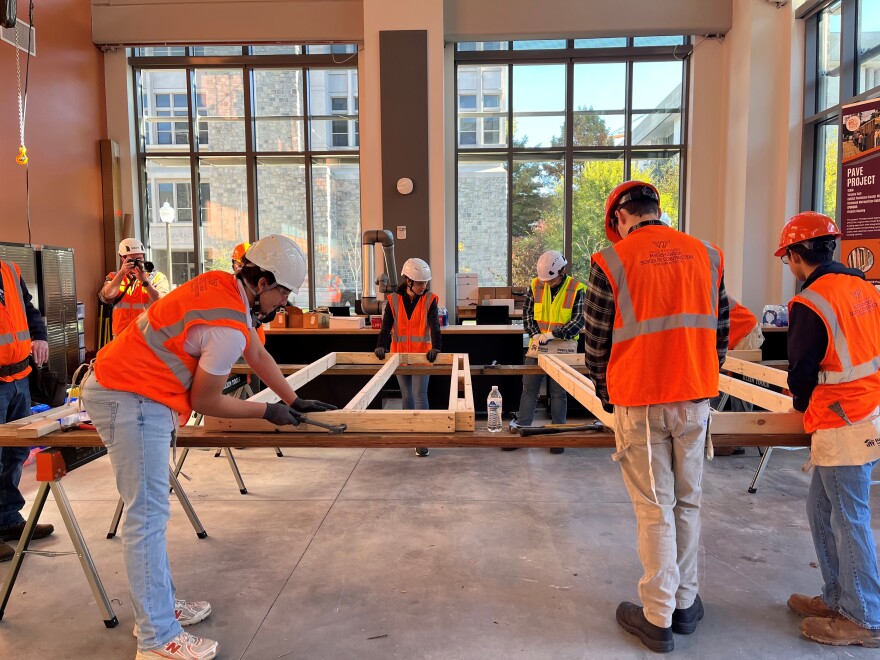Virginia has an affordable housing shortage. There are lots of factors— rezoning can be take time. The construction industry doesn’t have enough trained workers, and materials are expensive. Virginia Tech is partnering with Habitat for Humanity to figure out how to help build more homes quicker.
On a recent morning at the university’s Blacksburg campus, a dozen students hammered nails into wooden boards and loaded the finished frames onto trailers. The students come from different backgrounds, and no construction experience is required.
“They’re all volunteers,” explained Andrew McCoy, director of the Virginia Center for Housing Research at Virginia Tech, and Associate Director for Research and Innovation for the Myers-Lawson School of Construction. “The idea is that we’re trying to make this technology really accessible to people who might not normally know about framing or the technology at all.”
Through a grant from Virginia Housing, they’re building 18 homes for the Williamsburg and Richmond area. The project is one of five that received an innovation grant this year and is a collaboration with Habitat for Humanity Peninsula and Greater Williamsburg and Richmond Metropolitan Habitat for Humanity.
“This is geared towards non-profits like Habitat across the state,” McCoy said. “So we can walk in and we can say, ‘hey, here’s a number of sets of plans that you might be able to use on your site. If you can actually raise the funds for the materials themselves, you can produce these houses pretty quickly.”
After they evaluate the success of the project, McCoy said they hope to scale up, and several other Habitat organizations across the Commonwealth have already expressed interest.
Ten of the homes will be partially constructed with 3-D printed concrete, and McCoy said they’re also researching how to best use that technology to make homes more affordable, and quicker to build.


